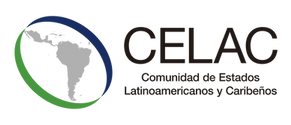
CELAC (Community of Latin American and Caribbean States) is an intergovernmental mechanism for political dialogue and regional coordination that brings together 33 countries in Latin America and the Caribbean, excluding the United States and Canada. Its objective is to promote unity, integration, development, and the defense of the region's common interests, serving as a forum for diplomatic coordination and addressing global and regional challenges.
Learn more
The Community of Latin American and Caribbean States (CELAC) is a regional coordination and integration mechanism created on December 3, 2011, in response to the need for efforts among the states of Latin America and the Caribbean to advance unity and political, economic, social, and cultural integration; increase social well-being, quality of life, and economic growth in the region; and promote independent and sustainable development based on democracy, equity, and broad social justice.
The central themes of CELAC's agenda are: Food Security; Family Farming; Women's Empowerment and Gender Equality; Population and Development; People of African Descent; Prevention and Combating of Corruption; Migration; Labor; World Drug Problem; Education; Culture; Science, Technology, and Innovation; Sustainable Development; Environment and Climate Change; Disaster Risk Management; Infrastructure; Energy; Productive and Industrial Development; Cooperation; Regional and Subregional Integration Mechanisms and Organizations; and Extraregional Relations.
Who is part of it?
Member States: Antigua and Barbuda, Argentina, Bahamas, Barbados, Belize, Bolivia, Brazil, Colombia, Costa Rica, Cuba, Chile, Dominica, Ecuador, El Salvador, Grenada, Guatemala, Guyana, Haiti, Honduras, Jamaica, Mexico, Nicaragua, Panama, Paraguay, Peru, Dominican Republic, Saint Kitts and Nevis, Saint Vincent and the Grenadines, Saint Lucia, Suriname, Trinidad and Tobago, Uruguay and Venezuela.
How does it work?
The instances in which decisions are made and commitments are adopted are:
Summit of Heads of State and Government.
Meeting of Ministers of Foreign Affairs.
Meeting of National Coordinators.
Specialized and/or technical meetings
Expanded Troika: CELAC Quartet (previous PPT, current PPT, next PPT) plus the CARICOM PPT.
The Pro Tempore Presidency rotates annually among its member states and is responsible for coordinating meetings and joint actions within the mechanism. To date, it has been held by the following countries: Chile (2012), Cuba (2013), Costa Rica (2014), Ecuador (2015), the Dominican Republic (2016), El Salvador (2017-2018), Bolivia (2019), Mexico (2020 and 2021), Argentina (2022), Saint Vincent and the Grenadines (2023), Honduras (2024), and currently Colombia (2025).
.png)